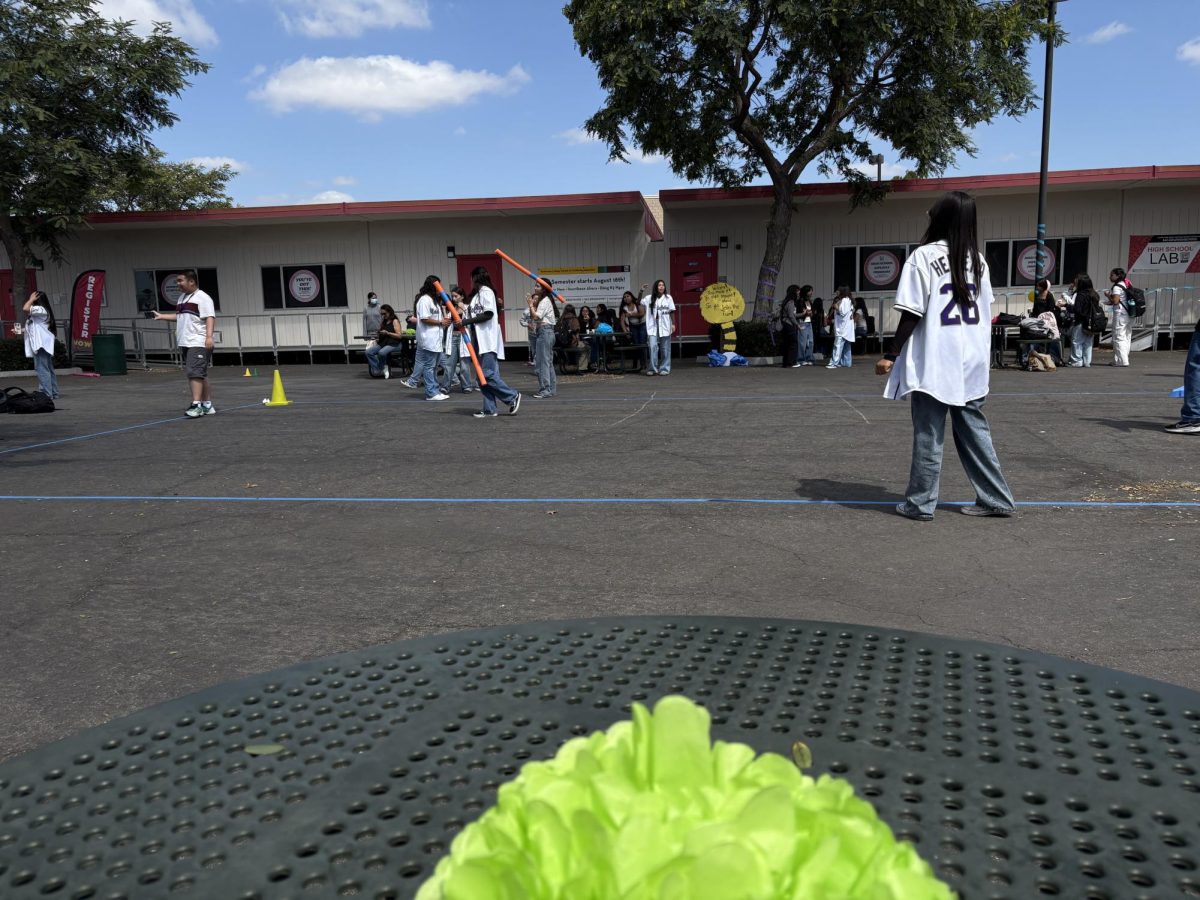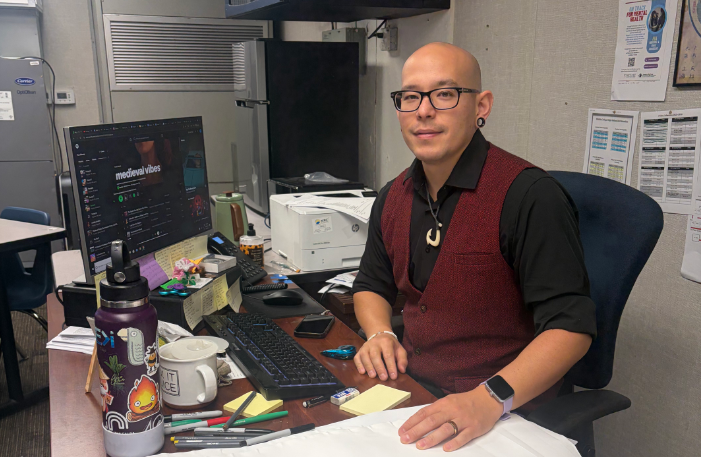A learning experience for all of MCHS
Students’ lack of choice in their college classes has resulted in frustration.
If you have signed up for any college classes, you know the stress of finding the right professor and course. You most likely have used ratemyprofessors.com to aid you during this stressful time, but unfortunately, that pressure only increases once you notice that your dream class has run out of space, and now you have to go with a professor that has a 2.3 rating. This was the life for MCHS students before the new system got enforced and it has been difficult to tell if this has made students’ lives better or worse.
At MCHS, we used to get classes by following a system called the “open enrollment” system. Students were able to register for a class that is part of SAC’s regular semester class schedule and choose what professor and section to take. However, a big issue with this system was that some students wouldn’t sign themselves up for classes and would be pushed back from getting their AA degree. As a way to solve this problem, a new system was enforced.
Coordinated classes are classes created by the dual-enrollment departments between SAUSD and SAC and they guarantee that high school-aged students have a seat in a college class. The classes are filled with students from the same high school, but depending on how the departments built them, high school students at differing high schools can be added to the same class.
MCHS counselor Janet Montes is in charge of making sure that MCHS students graduate high school and can accomplish their educational goals. Montes is entrusted with making sure that students are taking the right classes for their AA degree, as well as keeping up with our social and emotional wellbeing.
“I would say that in a high school setting, 80% of my job is academics while the other 20% is making sure that you guys understand your resources and know your mental health,” Montes said.
As a counselor at MCHS, Montes helps decide what classes each grade level should take as well as enforcing the new system of having coordinated classes. This has left some students at MCHS feeling a bit unrepresented regarding what classes and professors they get.
Senior Alejandro Prado said, “I think we, as students, should have more freedom when it comes to choosing what class to take and which professor to take the class with. Of course, the counselors help us decide and guide us, but if we don’t want to take a class like biology, we should be able to find an alternative.”
“I was able to choose from three different languages and I chose the ASL course, but I wasn’t given a choice when it came to the biology course,” sophomore Genesis Mendez said.
While Prado’s and Mendez’s claims are valuable, Montes explains that there are some classes that we have to take regardless of anything. These classes include taking a foreign language, science, math, electives, and more.
“You all need to take a foreign language, and since this is both a high school requirement and an AA requirement, it is of most importance that you are guaranteed a seat in a class versus having to rearrange your ed plan every semester if you are not able to get into the class you want,” Montes said.
While Montes is in charge of making sure our schedules help us meet our goals, she also thinks about the bigger picture of it all.
Montes said, “When we build your schedule, we do not only think about the one science class that you need to take, we think about your academic future – not just while at MCHS, but as you transition into higher education and your post-secondary options.”
Having requirements are nothing new but what is new is the coordinated classes. 11th and 12th graders were able to choose classes depending on their specific interests and that right is usually reserved for them due to their experiences with college classes. Although, as we could see with Prado, professors seem to play a role in whether a student will choose a specific class or section.
“The right professor can make or break a class. Someone who can teach you the history of the Americas like you’re watching a theater production might be a professor you enjoy. One who drones on in a monotone voice reading slides may be one you wish to avoid,” said writer Kim-Ling Sun in her article, “How to Choose Your College Professors.”
This is why it is understandable for students to be a bit frustrated by the coordinated classes and the freedom of choosing their classes being taken away. However, Montes provides some context about the coordinated classes.
“All the coordinated classes are actually not created by us. So, we just request them, and then SAC is actually the one responsible for telling us ‘yes or no.’ If they could create the class, and they actually assign us a professor…we get no choice,” Montes said.
Coordinated classes were put in place to guarantee that students would graduate with their AA degree; yet, it has left students longing for the freedom of choosing their professors and courses.
Professors play a big role in how students feel about classes and having students feel a bond with the professor can actually benefit them in performing better in that class.
An article on the Azusa Pacific University’s website titled, “The Importance of Professor and Student Connection” written by Ben Kissam reaffirms this belief.
“An analysis of 46 studies found that positive teacher and student relationships enhanced nearly every measurable aspect of academic success. Students were more likely to attend class, get higher grades, and graduate when they knew—and cared about—their professors,” Kissam said.
Yet, it’s clear to see that some students are not feeling this kind of connection with the professors they have. It is important for students to have a professor who makes them want to thrive in that class and encourages students to better themselves through their class and what they learn in it.
When asked who her best professor was, Montes tells the story of her psych-biology professor who asked her to drop his class, but still come to his lectures and then retake the class in the future. He said this so it would be easier for her to pass the class since she heard the information twice.
“We had very similar backgrounds and I think he saw that in me which is why he was like ‘You know what, just drop then retake it.’ He still had a high expectation of me with the understanding that ‘Yeah life is happening right now but that doesn’t make you less of a learner’,” Montes said.
Prado’s best professor was his Art-100 professor.
“A lot of the class was more visual instead of only reading and writing. I was very interested in seeing all the art, sculptures, etc,” he said.
Mendez’s best professor was her BA professor, Mr. Morgan.
“He really helped show exactly what we needed to do and was a mix of both serious and professional, yet fun and outgoing in his own way,” she said.
Something common with all of these stories is that the student felt like they were actually learning something in that class and that the professor wanted them to succeed in life. However, can that be guaranteed with the coordinated classes?
“We didn’t realize how important it is for us to advocate for particular professors that have done well in the past,” said Montes.
There are certainly some pros and cons to this system. A big pro is that it’s a reliable way to make sure that students pass their classes and get their AA. A big con is that there is no guarantee that the professor in charge of the coordinated class will be a good professor who wants their students to succeed.
Montes wants students who may be frustrated to know that they aren’t alone in their feelings.
“Let us sit together in this anger and loss of control. I understand it’s really frustrating and it’s frustrating for us because I can’t help you and we are naturally in the business of helping you,” she said.
This is not any of the counselors’ fault, since many politics are involved when it comes to MCHS students getting the college classes they need. However, Montes shares information concerning open enrollment.
“We never stopped using open enrollment, it is now mostly used for 11th and 12th-grade students since that is when your ed plan starts to differentiate depending on your interest,” Montes said.
Coordinated classes are mostly used for underclassmen since the counselors want to ease them into the process of being in a college class and having to handle all the work and the professors. As a student goes through their years, they start to gain more and more freedom when it comes to classes; however, it seems like what professor you will get in the end depends on your luck since you will be competing with other college students to get a class.
Montes has a plan to help ninth and tenth graders transition from coordinated classes to open-enrollment classes at SAC.
“[They will]..learn the skills very similar to how everyone else has learned, through a presentation in their AVID class… Since we do not have access to SAC resources, we try to be as hands-on as possible for the first two years to allow for all the learning needed before having to register on their own,” she said.
From the looks of it, coordinated classes will be kept for the freshman and sophomores that are to come while open enrollment will be kept for the juniors and seniors. Whether this system will be effective is still a mystery but the counselors seem to be determined to try to get our education goals met.
“You’re always going to have professors you don’t like though….You still have to pass the class and get your degree and you’re not going to let one person stop you from getting that degree because you worked too hard in every class leading up to it and you’re gonna work hard in every class after it,” Montes said.

I have two cats named Phoebe and Freddie, I am a music nerd who loves TWICE, Radiohead, and Hot Freaks, and my favorite color is green.





































